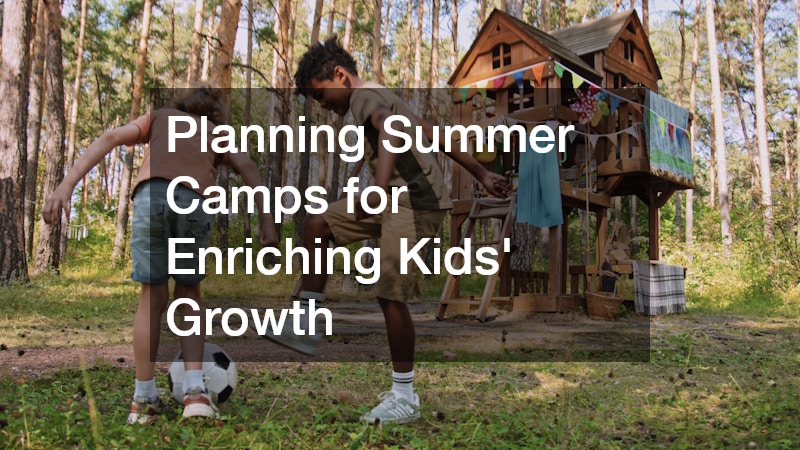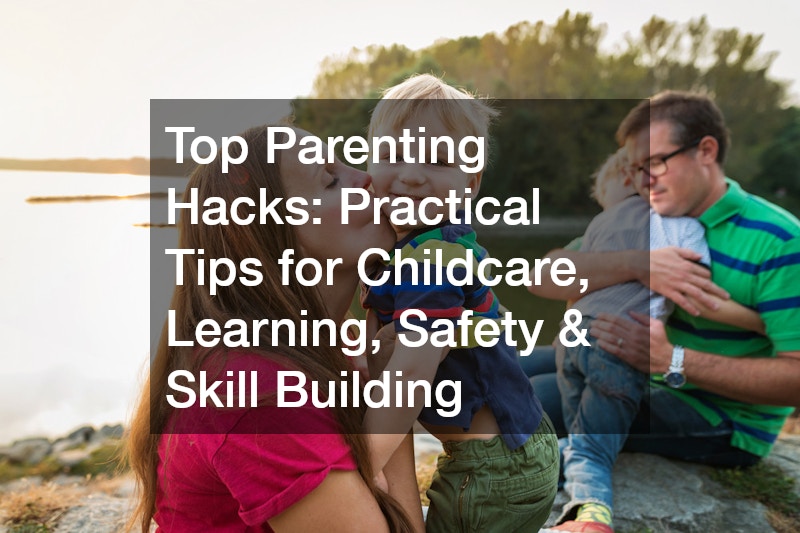Top Parenting Hacks Practical Tips for Childcare, Learning, Safety and Skill Building
- Structured routines and sleep management significantly improve infant wellbeing and reduce parental stress.
- Comprehensive childproofing and fire safety measures are essential to protect children in the home environment.
- Stimulating early childhood activities, including sensory play and guided learning, foster healthy development.
- Summer camps offer valuable social, physical, and emotional growth opportunities for children.
- Encouraging bilingualism from an early age enhances cognitive skills and cultural awareness.
- Holistic parenting supports emotional, social, and cognitive growth through mindfulness, nutrition, and strong relationships.
- Balancing extracurriculars with academics requires effective time management and stress recognition for healthy development.
Introduction
Parenting hacks have become essential in today’s fast-paced world due to the increasing demands on parents to support healthy child development and overall family wellbeing. As parents navigate the challenges of balancing infant care, ensuring safety, supporting education, and promoting quality activities, these hacks are invaluable in helping families thrive. From managing infant sleep to developing future skills, this article provides actionable advice for every stage of your child’s growth.
In today’s complex world, parents face numerous challenges. Balancing care for infants, ensuring child safety, supporting educational endeavors, promoting extracurricular activities, and building new skills for both young children and teens can be overwhelming. This article aims to address these diverse concerns by providing accessible and practical tips that parents can easily implement in their daily lives.
The concept of “parenting hacks” has emerged as a way to make parenting tasks more manageable and efficient. These strategies are designed to simplify the often-complicated life of a parent, reducing stress while enhancing the well-being of both the parent and the child. Studies have shown that introducing structured routines significantly impacts child development and reduces parental stress, highlighting the significance of strategic parenting.
In this article, readers can expect to explore a variety of practical tips and resources. This includes information on creating soothing sleep environments for infants, childproofing the home, engaging in stimulating play, and setting up enriching activities like summer camps. By applying these hacks, parents can ensure their children receive balanced and comprehensive support, fostering a holistic approach to child development.
Managing Infant Sleep for Better Family Health
Quality sleep in infants plays a critical role in promoting overall wellness for the entire family. When infants sleep well, it not only supports their physical and cognitive development but also allows parents to fulfill their responsibilities with less stress. Unfortunately, studies reveal that up to 50% of infants experience sleep difficulties, causing significant disruptions to parents’ sleep patterns and increasing stress levels.
Evidence-based strategies for managing infant sleep are fundamental to establishing peaceful nights. Creating a consistent bedtime routine, controlling the light and noise in the baby’s sleep environment, and ensuring consistent wake times are all essential components of a structured sleep approach. Many parents benefit from enrolling in an infant sleep management course to gain deeper insights and practical skills in this area.
Actionable tips for creating an optimal sleep environment include the use of soothing, dim lighting, employing white noise machines to drown out disturbances, and paying attention to the baby’s sleep cues. Consulting with pediatricians or sleep specialists can provide additional personalized guidance if sleep challenges persist. For further information and sleep hygiene tips, parents can refer to resources like the National Sleep Foundation to enhance their efforts.
Additional Tips & Suggestions:
- Track infant sleep patterns to identify optimal sleep windows and avoid overtiredness.
- Use swaddling techniques safely to promote secure sleep and reduce startle reflex disruptions.
- Encourage daytime naps to balance overall sleep needs, preventing nighttime overtiredness.
- Limit screen exposure and overstimulation before bedtime to help infants wind down naturally.
- Consider gentle massage or warm baths as part of the bedtime routine to relax your baby.
Resources like the National Sleep Foundation offer detailed guides and sleep hygiene tips to support parents. Consistency and patience are key; gradual improvements lead to better sleep quality for infants and the entire household.
Safe and Secure Home Environments for Kids
Ensuring a safe and secure home environment is crucial to preventing accidents, as statistics indicate that most child injuries could be avoided through proper childproofing. Installing safety devices such as outlet covers, cabinet locks, and stair gates is a fundamental step in childproofing the house. Additionally, essential safety features like smoke detectors are critical to alerting families to potential dangers promptly.
A comprehensive understanding of fire safety extends beyond the installation of smoke detectors. Parents are encouraged to practice safe cooking techniques, organize fire drills with the family, and consider installing fire sprinkler systems to mitigate fire-related risks. For those interested in advanced education, enrolling in fire sprinkler classes provides valuable knowledge on enhancing home safety practices.
Conducting a thorough home safety audit is a vital actionable to ensure all potential threats are managed appropriately. Involving children in safety conversations not only teaches them about safety but also empowers them to act responsibly. Building a family emergency plan, complete with regular updates and practice drills, further ensures that everyone is prepared for unexpected situations. Parents can also refer to resources from the US Consumer Product Safety Commission for comprehensive guidelines and checklists.
Additional Tips & Suggestions:
- Install carbon monoxide detectors along with smoke alarms for comprehensive hazard detection.
- Keep emergency numbers and first aid kits accessible to all family members.
- Secure heavy appliances and TVs to walls to prevent tipping.
- Childproof bathroom areas by using faucet covers and non-slip mats.
- Educate older children on emergency responses and safe behavior around household appliances.
The US Consumer Product Safety Commission provides detailed safety checklists and resources. Engaging children in safety conversations empowers them to recognize dangers and develop responsible habits.
Stimulating Activities to Promote Early Childhood Development
Engaging children in stimulating activities significantly supports their brain development, motor skills, and socialization abilities. Play is a crucial component in early childhood that fosters creativity and problem-solving skills while promoting physical and cognitive growth.
Activities for young children such as sensory play, building blocks, art, music, and outdoor exploration are fundamental aspects of early learning. These hands-on experiences encourage curiosity and develop fine and gross motor skills, language, and social interaction. Incorporating a variety of sensory and creative activities helps children explore their environment, develop problem-solving abilities, and build essential foundational skills.
Early learning centers provide structured environments that complement home-based activities by offering age-appropriate learning models and opportunities for social engagement. These centers promote cognitive and behavioral progress through guided instruction and peer interaction. The supportive atmosphere encourages children to explore new concepts, build friendships, and develop emotional regulation skills, which are crucial for overall development.
Balancing free play with guided activities ensures children receive both creativity and focus in their learning. Managing screen time effectively preserves the quality of play, while social engagement through playdates or community programs further nurtures important interpersonal skills. For additional support, families can explore resources from organizations like Zero to Three, which offer valuable educational guidance for parents and caregivers.
Additional Tips & Suggestions:
- Create DIY sensory bins using household materials to encourage tactile exploration.
- Incorporate music and rhythm games to develop auditory and motor skills.
- Plan regular nature walks to connect children with the environment and encourage curiosity.
- Use storytelling and role-playing to foster language development and empathy.
- Rotate toys and learning materials to maintain interest and stimulate different skills.
Organizations like Zero to Three offer extensive resources on early childhood development, helping parents design stimulating routines that maximize learning potential.
Planning Summer Camps for Enriching Kids’ Growth

Summer camps offer an enriching opportunity for children to enhance their social skills, independence, physical activity, and exploration of new interests. These camps are often seen as a pivotal experience, allowing children to grow and thrive outside their usual environments. Studies indicate that children who attend summer camps develop improved confidence and resilience, making camps a valuable choice for summertime engagement.
When selecting a camp, choosing programs that align with the child’s interests and the family’s values is vital. Day camps, specialty camps, and those focusing on arts, sports, or academics offer diverse experiences tailored to specific interests. Budgeting for summer camps and performing thorough safety checks on potential camps ensure that children enjoy a positive learning experience safely.
Preparing children for summer camps involves asking the right questions of camp staff, discussing emotional readiness with your child, and packing the necessary essentials to ensure health and convenience. The American Camp Association provides camp quality assurance and offers tools to aid in searching for the right camp fit. Infusing the summer with these enriching camps supports a more diverse and mature development for young participants.
Additional Tips & Suggestions:
- Engage your child in choosing camps to increase enthusiasm and readiness.
- Discuss emotional preparedness and expectations to ease transition anxiety.
- Pack essentials thoughtfully, including sun protection, water bottles, and comfort items.
- Connect with camp staff beforehand to clarify health and safety protocols.
- Encourage post-camp reflection to help children integrate new skills and friendships.
Visit the American Camp Association for resources on camp quality and selection tips.
Encouraging Bilingualism and Language Learning in Kids
Learning a second language from an early age promotes cognitive flexibility, improves problem-solving skills, and enhances cultural awareness. The neurological benefits are profound, as evidenced by research which shows that bilingual children often demonstrate delayed onset of dementia and improved executive function in adulthood. Engaging in language learning is a strategic parenting approach that enriches child development immensely.
Parents can introduce language learning in their homes using bilingual books, language-focused apps, and immersion activities like conversations in foreign languages. Enrolling children in dedicated language enrichment programs further strengthens their language skills and provides cultural exposure through music, food, and festivals. Regular practice is key, and having consistent routines for language learning supports skill retention and fluency.
Parents without fluency can rely on community resources such as language exchange groups or hire tutors to provide structured language lessons. Language instruction is a rewarding pursuit that opens new cultural dimensions for children, fostering both personal and academic advancement. The Center for Applied Linguistics offers numerous resources and guidance programs for families interested in enhancing language skills.
Additional Tips & Suggestions:
- Designate “language days” or times to immerse the family in a second language.
- Incorporate songs, games, and cooking activities related to the language’s culture.
- Use language learning apps like Duolingo Kids or Lingokids for engaging practice.
- Join community language exchange groups to practice conversational skills.
- Encourage storytelling in both languages to build vocabulary and confidence.
The Center for Applied Linguistics provides resources for families supporting bilingual development.
Holistic Approaches to Nurturing Child Development
A holistic approach to child development emphasizes the balance of emotional, social, physical, and cognitive growth. This comprehensive form of nurturing acknowledges the importance of factors such as mindfulness, nutrition, supportive relationships, and healthy environments in fostering well-rounded development. Each facet plays a crucial role in preparing children for a healthy, fulfilling life.
Implementing mindful parenting practices encourages awareness and empathy in both parents and children, contributing positively to social-emotional development. Encouraging emotional intelligence through open communication, modeling positive behaviors, and fostering creativity helps children navigate challenges effectively. Parents can support this holistic method by engaging collaboratively with teachers, healthcare providers, and therapists to ensure their children receive comprehensive care and attention.
Further, actionables like fostering an environment of encouragement and curiosity, exploring novel activities, and supporting emotional and social skills development are essential. Parents interested in this approach can find a wealth of information and research-backed insights from trusted resources such as the Harvard Center on the Developing Child. Structured approaches to development help children reach their potential with confidence and enthusiasm.
Additional Tips & Suggestions:
- Practice daily mindfulness exercises or breathing techniques with children.
- Prioritize balanced nutrition rich in fruits, vegetables, and whole grains.
- Establish family rituals to build secure, supportive connections.
- Explore creative outlets like art or music to enhance emotional expression.
- Maintain open communication to recognize and address emerging challenges.
The Harvard Center on the Developing Child offers evidence-based insights on holistic child development.
Physical Fitness and Life Skills Through Sports Training

Sports academies, such as tennis academies, offer a dynamic setting for developing physical fitness and life skills for kids. Children who regularly engage in sports display better physical health, improved social skills, and stronger academic performance. Through structured programs, they learn discipline, focus, hand-eye coordination, and teamwork, laying the groundwork for lifelong health and success.
Tennis provides a unique platform to enhance these skills and cultivate a high level of discipline. Through tennis academies, children gain critical life skills such as goal-setting, strategy planning, and team collaboration. Selecting reputable training centers and encouraging consistent practice without overexertion ensures a balanced approach, minimizing the risk of burnout while maximizing enjoyment.
Fostering a positive competitive spirit and maintaining an atmosphere of fun in sports activities prevent burnout and encourage sustained enthusiasm. The USTA Youth Programs offer resources for tennis development and a locator for finding reputable tennis academies. Encouraging children to engage in sports aids their physical conditioning and social interaction skills, supporting their overall development goals.
Additional Tips & Suggestions:
- Set realistic goals with children to track progress and celebrate achievements.
- Encourage regular hydration and proper nutrition to support training.
- Foster a positive mindset by emphasizing effort over winning.
- Provide opportunities for socialization through team events and group lessons.
- Monitor for signs of fatigue or stress, adjusting training intensity accordingly.
The USTA Youth Programs offer training resources and academy locators for tennis enthusiasts.
Practical Tips for Balancing Extracurriculars and Academics
Managing a child’s busy schedule between extracurricular activities and academics can be challenging. Effective time management, prioritization, and recognition of stress indicators are essential in preventing burnout and ensuring balanced growth. Introducing nail tech classes or similar vocational skills programs can be valuable extracurricular additions that provide practical, hands-on learning opportunities and help develop specialized talents.
Parents can create structured family calendars, host regular family check-ins, and teach their children to set boundaries and learn to say no when necessary. Additionally, exploring options at local beauty schools can offer children a nearby, supportive environment to gain new skills in a focused setting. Ensuring open communication with schools and activity instructors supports a cohesive understanding of workload expectations and performance standards. These practices provide a foundation for maintaining balance and achieving long-term academic and personal success.
The American Psychological Association offers additional resources on stress and time management for children and teens, helping ensure they maintain a healthy balance in their lives. Encouraging autonomy and teaching responsibility regarding time management promotes a sense of control and self-assurance in children, important attributes for their developmental journey.
Additional Tips & Suggestions:
- Use family calendars or digital planners to track activities and deadlines.
- Encourage children to identify stress signals and practice relaxation techniques.
- Limit overscheduling by prioritizing quality over quantity in activities.
- Facilitate regular check-ins to adjust commitments as needed.
- Teach children to set boundaries and say no respectfully to prevent overload.
The American Psychological Association provides resources on youth stress and time management.
Safety and Emergency Preparedness for Parents and Kids
Safety extends far beyond the home – it encompasses playgrounds, schools, and neighborhoods. Teaching children about emergencies and safety at age-appropriate levels equips them to handle various situations confidently. Introducing topics such as fire safety through community programs like fire sprinkler classes provides practical learning experiences for families.
Families should create comprehensive emergency plans, practice drills regularly, and keep emergency kits accessible and updated. Ensuring plans are adapted as children grow, and involving them in safety discussions enhances their understanding and cooperation during crises. Resources like Ready.gov provide valuable insights and templates for constructing effective family emergency plans.
Regularly revisiting and updating these plans aligns with evolving family dynamics and living conditions. Encouraging open communication and involving all family members in safety preparations instill responsibility and teamwork. This proactive approach equips children with valuable life skills, enhancing their ability to manage stress and uncertainty effectively.
Additional Tips & Suggestions:
- Regularly update emergency contact lists and distribute to family members.
- Practice evacuation routes and safe meeting points in multiple scenarios.
- Teach children to recognize hazards and how to seek help safely.
- Assemble and maintain a well-stocked emergency kit including supplies for all ages.
- Involve children in safety plan development to increase understanding and cooperation.
Ready.gov provides extensive templates and guidance for family emergency preparedness.
Supporting Your Child’s Passion Through Skill Development

Nurturing a child’s passion and interests early on is crucial for building confidence and preparation for the future. Observing their interests and researching local programs like nail tech classes and beauty schools help tangibly develop their skills. Vocational training not only boosts self-esteem but also enhances employability, offering practical skills useful in future career paths.
Parents can support this process through actionables like engaging in interest observations, encouraging trials without pressure, and actively searching for available programs. Creating an environment supportive of growth mindset principles and celebrating effort rather than just success helps build resilience and motivation in children. Edutopia provides extensive resources on supporting student passions and skill development, offering valuable insights for parents.
Fostering a positive learning environment and ensuring kids feel supported through their explorations nurture a sense of ambition and drive. By prioritizing skill-building and passion development, parents can enable their children to explore opportunities that align with their interests and aspirations, paving the way for a fulfilling future.
Additional Tips & Suggestions:
- Celebrate efforts and progress to foster a growth mindset.
- Provide resources and materials related to your child’s interests.
- Connect with mentors or professionals in relevant fields.
- Encourage participation in clubs, workshops, or competitions.
- Maintain open dialogue about goals, challenges, and aspirations.
Edutopia offers extensive guidance on cultivating student passion and skill development.
Conclusion
In conclusion, incorporating parenting hacks across varied aspects of childcare, from sleep and safety to activities, learning, and skills, contributes significantly to holistic child development. By implementing these practical strategies, parents can make small yet impactful changes that foster well-rounded, thriving children. Proactive, informed parenting strategies cannot be overstated when aiming to create supportive, nurturing environments for both children and parents.
Beginning with just one actionable tip this week allows families to gradually explore and integrate beneficial changes, leading to clear, positive developments within the family dynamic. Parents are encouraged to prioritize incremental improvements, continually learning and adapting to meet the needs of each child. Embracing parenting hacks supports a path to balanced development, ensuring both familial and individual success.
As parents commit to thoughtfully addressing the needs of their children, focusing on impactful hacks elevates the overall family experience. Trying one hack at a time, observing the transformations within the family, and adjusting strategies as needed drives continuous growth. Ultimately, these tools empower parents to lead with confidence, creativity, and compassion — fostering happy, healthy, and successful children.
Frequently Asked Questions (FAQs)
Q1: How can I help my infant sleep better through routines?
Establish consistent bedtimes and wake times, create a soothing environment with dim lights and white noise, and watch for sleep cues to avoid overtiredness.
Q2: What are key childproofing essentials for home safety?
Install outlet covers, cabinet locks, stair gates, smoke detectors, and secure heavy furniture. Regularly audit your home for hazards and involve children in safety talks.
Q3: How do summer camps benefit my child’s development?
They improve social skills, independence, confidence, and physical fitness, providing new learning environments and challenges outside the home.
Q4: What are effective ways to encourage bilingualism at home?
Use bilingual books, apps, immerse children in language activities, and join community programs or language classes to maintain consistency and cultural exposure.
Q5: How can I balance my child’s academics with extracurricular activities?
Use planners to schedule, teach time management skills, prioritize activities, watch for stress signals, and communicate openly with schools and instructors.
Q6: Why is emergency preparedness important for families?
Preparedness ensures everyone knows how to respond in crises, reducing panic and potential harm. Regular drills, updated plans, and accessible kits increase family safety.
Q7: How do vocational programs support my child’s future?
They provide hands-on skills, boost confidence, and offer career pathways, helping children explore passions and build practical abilities early.




Post Comment